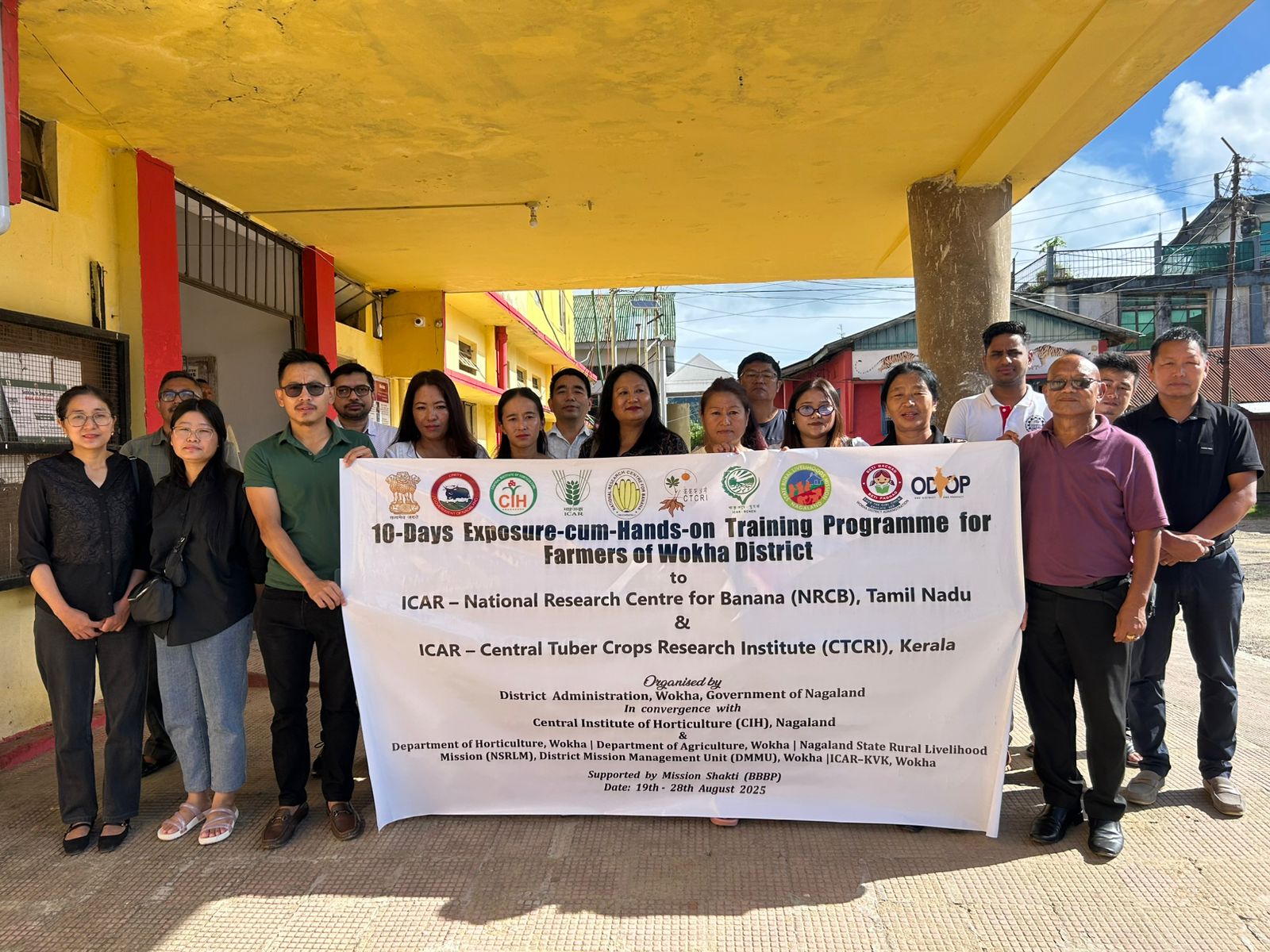A 10-day exposure training for Wokha farmers was launched to provide hands-on learning at ICAR research institutes in Tamil Nadu and Kerala, focusing on banana and tuber crop cultivation.
Share

DIMAPUR — The District Administration, Wokha, in collaboration with the Department of Horticulture, Central Institute of Horticulture, Department of Agriculture, Mission Shakti, and NSRLM, has launched a 10-day exposure-cum-training programme for 19 farmers, including 13 women farmers, at leading national research institutes in Tamil Nadu and Kerala.
According to a DIPR report, the programme was flagged off from the DC office premises on Tuesday. It is the first-of-its-kind initiative to boost agri-entrepreneurship and scientific farming practices.
The farmers’ team will undergo specialised training at the ICAR-National Research Centre for Banana (NRCB), Tiruchirapalli, Tamil Nadu, and the ICAR-Central Tuber Crops Research Institute (CTCRI), Thiruvananthapuram, Kerala.
Also read: Mokokchung, Kiphire and Kohima celebrate World Photography Day
The programme will provide participants with first-hand experience in advanced production techniques, scientific management practices, and value addition in banana and tuber crops.
Alongside the farmers, officials from the district administration, Horticulture Department, Agriculture Department, and Krishi Vigyan Kendra (KVK) are also part of the delegation, ensuring that the knowledge gained will be integrated into local agricultural extension systems for long-term impact.
Speaking on the initiative, Deputy Commissioner of Wokha Vineet Kumar highlighted that the programme is designed not only to enhance productivity but also to empower women farmers and promote livelihood diversification. By equipping farmers with knowledge of modern cultivation methods and processing technologies, the district aims to create opportunities for value-chain development, agri-based enterprises, and market linkages in Wokha.
This is expected to have a transformative impact on the farming community by bridging local farmers with national-level research and innovation, thereby strengthening food security, income generation, and sustainable agricultural practices in the district.